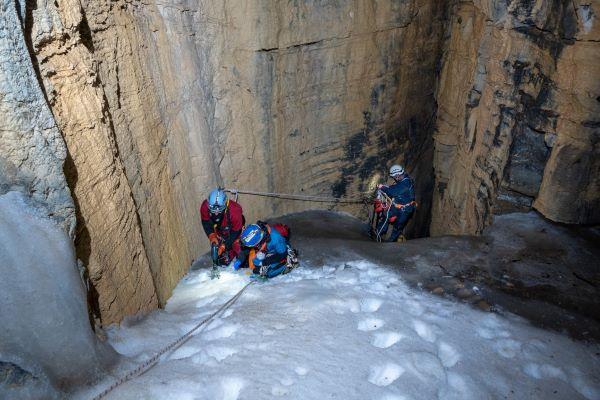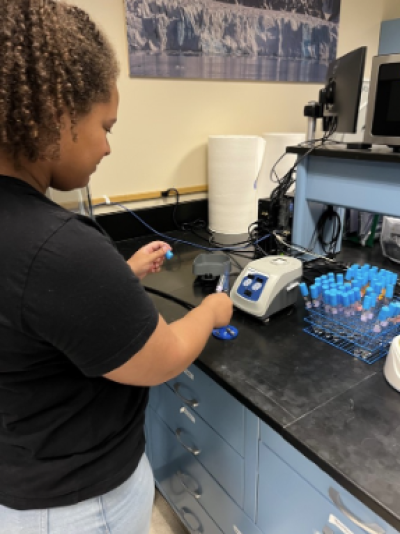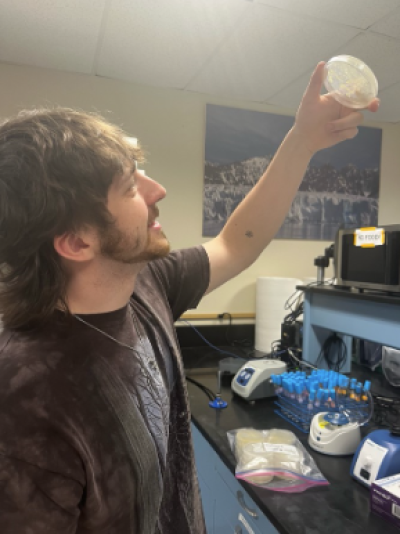Undergraduate Researchers Receive Funding to Study Microorganisms from Unique Ice Environments

Congratulations to Rylin Lofton and Wyatt Walker, both undergraduate researchers in the Polar Geomicrobiology Group, for being awarded grants to support their research projects exploring the role of microorganisms in unique ice environments.

Rylin, who is a third-year biology student, was recently awarded the Student Sustainability Grant from Ohio State’s Sustainability Institute, a competitive grant intended to support student research projects related to sustainability. Rylin’s research project, titled, “The journey from ice to ocean: who will survive?”, will explore how microorganisms trapped in ice sheets and glaciers may adapt to and impact surrounding marine environments upon melting of the ice. These microorganisms may have an impact on nearby marine ecosystems and thus may affect aquaculture and fisheries as glaciers continue to melt in a warmer future.
In 2024, Rylin was also selected for Ohio State’s Undergraduate Research Apprenticeship Program (URAP). URAP is a competitive funding and professional development opportunity through the Undergraduate Research & Creative Inquiry office to assist students in any major or research area with their undergraduate research project. The program supported Rylin’s work testing a cleaning method for samples collected from near-surface of an ice sheet (called firn) which is compacted, porous snow. Microbiological studies of this part of the ice sheet are especially difficult because of potential contamination caused by the firn’s porous nature. Rylin can now study the native microbial community in the firn from the West Antarctic Ice Sheet using the cleaning method she tested during the past fall and spring semester. Rylin’s URAP project piqued her interest in microbes living in ice sheets and led to her current research project funded by the Student Sustainability Grant.

Wyatt, a third-year environmental science student, was selected for the URAP summer program, which will support his research project titled, “Changing Metabolic Potential Along a Light Gradient in Two Ice-Containing Caves in Great Basin National Park”. This summer, Wyatt will be exploring what fuels microorganisms in cave ice as light gets dimmer throughout the caves. As temperatures warm, cave ice is a disappearing habitat and water resource for the Rocky Mountain region. Wyatt will be studying those microorganisms which might be threatened by the loss of ice.
Alex Michaud, Principal Investigator of the Polar Geomicrobiology Group, is excited to have these students working on the team this summer and noted, “Rylin and Wyatt are at the forefront of discovery with these projects. I commend them for taking on difficult projects and obtaining the funding support to do so.”
